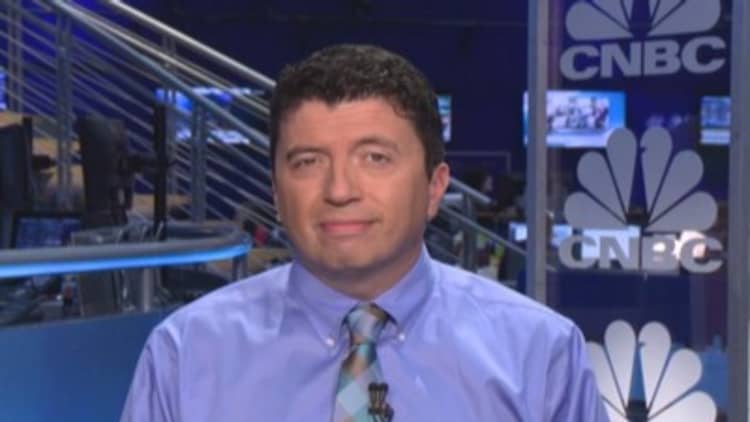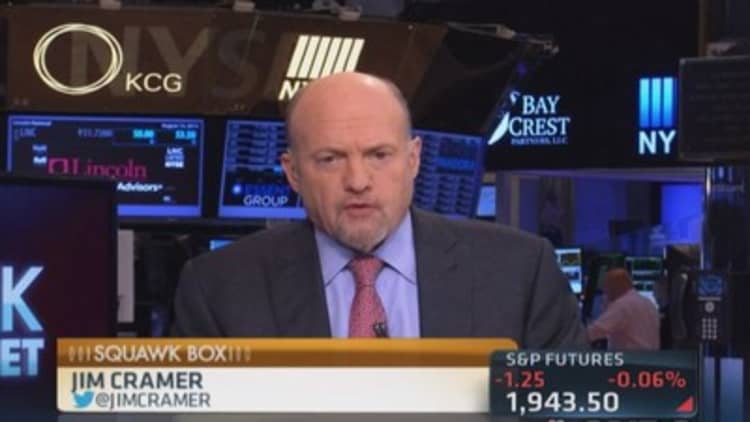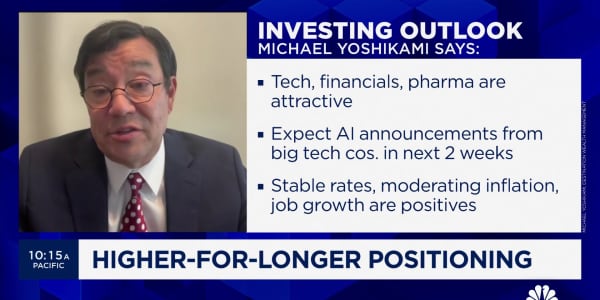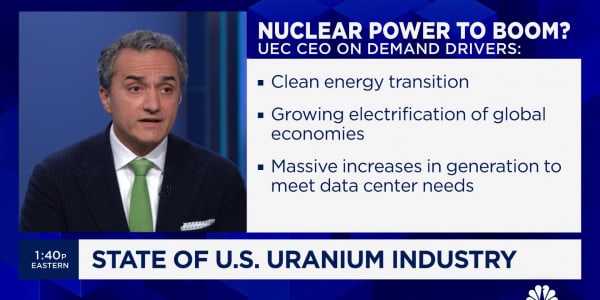
Investors are showing little reaction to the events in Ukraine and the Middle East, taking their cue from a Federal Reserve unlikely to show much concern despite the seriousness of both trouble spots.
An analysis from Goldman Sachs helps explain why the market has displayed only momentary reactions to the ongoing dispute between Russia and the separatists in Ukraine, and actually rallied the day President Barack Obama announced targeted airstrikes against ISIS rebels in Iraq.
Economists Michael Cahill and David Mericle believe investors will continue to dismiss the threats:
The current US air strikes in Iraq are unlikely to have a significant impact on defense spending or oil prices, unless the scale of the conflict changes considerably. Evidence from past U.S. conflicts that were similar in scale also suggests little impact on confidence and at most mixed evidence of a flight-to-safety effect in financial markets. The exchange of sanctions with Russia--a relatively minor U.S. trading partner--is also likely to have only a modest impact on the U.S. economy. Of course, both situations are highly unpredictable.

In the Iraq situation, the impact would be felt only if the conflict increases—and that's certainly been the case with past engagements, in particular Bosnia and Kosovo in the 1990s.
Read MoreTheoil spike that wasn't: Prices defy turmoil
Overall, though, defense spending has been on the decline in the U.S., and that's likely to continue unless Obama decides to commit ground troops to Iraq, something he has promised not to do.
In terms of the impact on oil prices, the global unrest has produced a few brief spikes, but U.S. crude prices are only modestly higher since the beginning of the year.
The Goldman economists point out that it generally has taken more serious conflicts to generate unrest in energy markets:
One reason for the limited reaction recently is that despite its advances in northern and western Iraq, ISIS remains far from the key southern oil fields and export terminals. A second reason is that shale has reduced the vulnerability of oil markets to supply shocks originating in the Middle East.
Russia, in fact, has tended to have greater market impact. Tensions in mid-January and early April produced some of the biggest market drops of the year, though the market rebounded each time.
Read MoreRussian aid convoy rolling again
That fits with the analysis from Cahill and Mericle that the effects from the conflict likely will be limited, failing a larger escalation.
While sanctions are likely to have a larger impact on the Russian economy, the effect on the Euro area economy is likely to be more modest and the effect on the U.S. economy is likely to be smaller still. Russia is a relatively minor US trading partner, accounting for an average of just 1.1% of US goods imports and 0.7% of US goods exports over the last 12 months, of which about $1bn was US food exports (compared to total US exports of over $2 trillion). That said, Russia accounts for a considerably larger share of US trade than most other recent US sanctions targets, and some multi-nationals have already noted a hit to sales.
Taken together, the events are unlikely to scare the Fed into veering from its present course.
The U.S. central bank is nearing the third round of quantitative easing, its monthly bond-buying program that has coincided strongly with market gains. Goldman's economists do not expect the Fed to give much consideration to Russia or Iraq in plotting its strategy ahead.
Read MoreExpect to feel the pain from Fed's 'taper' dismount
Over the past several years of oil price hikes, the Fed has largely dismissed them as temporary and not representative of broader economic moves:
Current geopolitical risks are likely to influence monetary policy only if associated with a sustained spike in energy prices. The Fed's Monetary Policy Report issued on July 15 noted that oil prices had risen beyond their recent range "only temporarily in reaction to events in Iraq," and prices have since declined.
The limited response to smaller conflicts reflects their modest economic and financial impact, as well as the concern--noted in 1998 by former Cleveland Fed President Jerry Jordan--that while the Fed has "a long history of responding to … international events such as financial crises and military actions," it has to "be very, very careful about how much of a response we make because the developments in question tend to be reversed. … We have had a number of episodes in the past where we responded to surprises and overstayed our response"
—By CNBC's Jeff Cox






